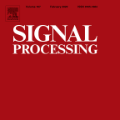This study explores the design and application of Complex-Valued Convolutional Neural Networks (CVCNNs) in audio signal processing, with a focus on preserving and utilizing phase information often neglected in real-valued networks. We begin by presenting the foundational theoretical concepts of CVCNNs, including complex convolutions, pooling layers, Wirtinger-based differentiation, and various complex-valued activation functions. These are complemented by critical adaptations of training techniques, including complex batch normalization and weight initialization schemes, to ensure stability in training dynamics. Empirical evaluations are conducted across three stages. First, CVCNNs are benchmarked on standard image datasets, where they demonstrate competitive performance with real-valued CNNs, even under synthetic complex perturbations. Although our focus is audio signal processing, we first evaluate CVCNNs on image datasets to establish baseline performance and validate training stability before applying them to audio tasks. In the second experiment, we focus on audio classification using Mel-Frequency Cepstral Coefficients (MFCCs). CVCNNs trained on real-valued MFCCs slightly outperform real CNNs, while preserving phase in input workflows highlights challenges in exploiting phase without architectural modifications. Finally, a third experiment introduces GNNs to model phase information via edge weighting, where the inclusion of phase yields measurable gains in both binary and multi-class genre classification. These results underscore the expressive capacity of complex-valued architectures and confirm phase as a meaningful and exploitable feature in audio processing applications. While current methods show promise, especially with activations like cardioid, future advances in phase-aware design will be essential to leverage the potential of complex representations in neural networks.
翻译:暂无翻译




